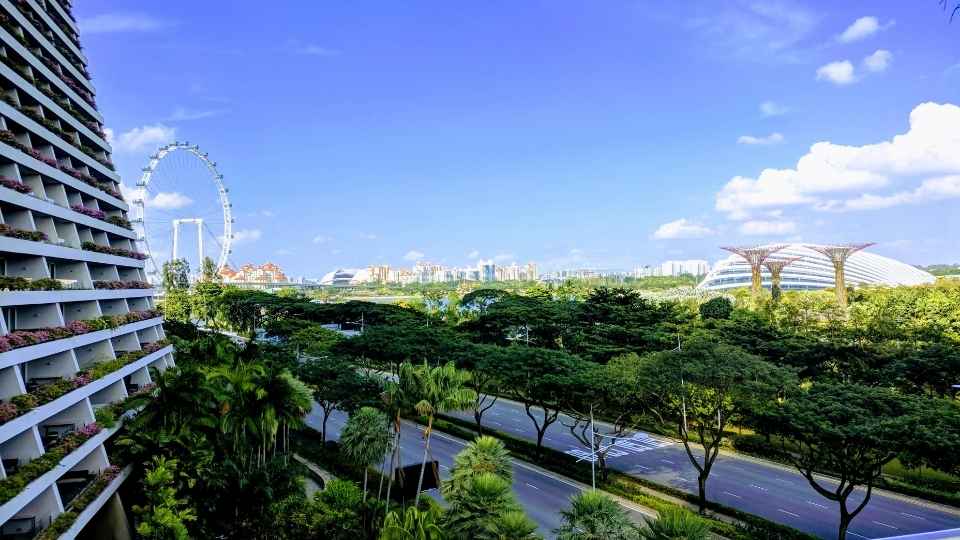
Senior Business Administrator
January at Future Leap
‘Twas a Green Christmas at Future Leap
November at Future Leap
October at Future Leap
September at Future Leap
August at Future Leap
Sustainable Cities Around the World
On October 21st, Future Leap hosted the thought provoking “Sustainable Cities Around the World: What can we Learn?” event. Speakers from global commercial real estate and consulting firms shared their ideas and experiences with an online audience and engaged in question and answer sessions.
Clare Wildfire, the Global Practice Leader for Cities, kicked things off with Mott Macdonald’s top 5 recommendations for building healthy cities and communities globally:
1. Promote activity & exercises for all
2. Improve air quality: reduce congestion, improve public transport and invest in green infrastructure
3. Improve well-being & social cohesion: create opportunities to connect with nature, develop inclusive community spaces and promote intergenerational living
4. Improve nutrition: make healthy food accessible and build infrastructure for urban gardening
5. Develop pandemic resilience: increase ventilation, reduce crowding, ensure access to healthcare
Eleanor Akers, a Future Leap Consultant, examined the powerful role played by local policy and legislation in cities around the world in the fight against climate change. She walked through the impact of four local laws on emissions from buildings and vehicles in the UK, the US and Spain. She concluded that the most the effective legislation:
· Mandates incremental changes
· Enforces financial penalties for non-compliance
· Is accompanied by funding mechanisms for innovation and sustainable investment
· Achieves cross-party by in
Jeremy Kelly of JLL followed up with a comprehensive overview of how cities from Singapore to Los Angeles have made public net zero commitments. He went on the discuss the vital importance of fortifying these bold statements with tangible action plans tailored to each city’s needs.
In many cities, multi-story buildings are the largest sources of pollution. Jeremy gave examples of ambitious retrofitting initiative designed to tackle emissions from older buildings and examined the role of net zero building accelerator programmes in Hong Kong and Dubai in achieving net zero. He concluded that an ecosystem of partnerships: including city government, residents and investors is key to maintaining and achieving the net zero carbon agenda.
The event concluded with Dr Amy Hochadel’s fascinating overview of the Connected Places Catapult (CPC) conclusion that net zero is a key element to the creation of smart and resilient cities. CPC leads a taskforce that is developing model policies for cities’ digital infrastructure challenges. These policies can be used by any city worldwide.
“Smart resilience is the premise of a data driven response, at a systematic city-level, to guide and maintain city readiness and capacity during times of shock”
— Dr Hochadel
Smart and resilient cities are able to withstand systemic shocks, such as the COVID 19 pandemic, in the 21st century because they are:
1. Agile: information is accessible and is used to create realistic plans, strategies, and projects
2. Digital: able to integrate subsystems and stakeholders and orient them around shared goals
3. Net zero: urgent action and investment into resilience plans is required
This inspiring session gave us a glimpse at how we can and will reach a net zero future. We heard about the technological advancements making a net-zero future more tangible by the day and the individual and policy level support needed for successful implementation. To learn more about any of these topic and speakers, e-mail events@futureleap.co.uk and check out the website to register for future events.
Piece written by Katie Akers and Eleanor Akers.
Eleanor is a Future Leap consultant working with businesses across the UK to understand where they are on their sustainability journey and how to take the next steps towards achieving their sustainability goals. To find out more e-mail consultancy@futureleap.co.uk. As Director of Innovative Energy Consultants, Eleanor works with Energy and Sustainability Tech companies to commercialise their innovation and quantify their ESG impact. She is a charted Chemical Engineer and holds an MBA from Johns Hopkins.
Katie is an Analyst at Innovative Energy Consultants where she is responsible for ensuring day-to-day compliance and reviewing contracts. She has a degree in European Law from Maastricht University and uses her knowledge of English and EU law to help businesses grow sustainably.


